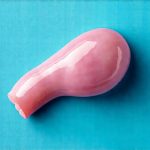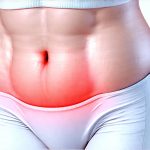Alcohol consumption is deeply woven into many cultures worldwide, often associated with social gatherings, celebrations, and even relaxation. However, beyond its immediate effects, alcohol’s influence extends to various bodily systems, sometimes in ways individuals aren’t fully aware of. While moderate drinking may pose limited risks for some, excessive or chronic alcohol use can significantly impact several organ systems, including the urinary tract – specifically the bladder and prostate. Understanding these potential connections is crucial for maintaining overall health and wellbeing, particularly as we age, when both bladder function and prostate health naturally become areas of increased concern.
The relationship between alcohol and urological health isn’t always straightforward. It’s not necessarily about a single large event; rather, it’s often the cumulative effect of regular consumption that can lead to problems. Alcohol acts as a diuretic, meaning it increases urine production. This, in itself, might not seem problematic, but frequent trips to the bathroom can disrupt sleep and potentially contribute to urgency and incontinence over time. Furthermore, alcohol’s effects on hormones, inflammation levels, and nerve function all play a role in how these organs operate, making them vulnerable when exposed to prolonged or excessive intake. This article will delve into the specific ways alcohol interacts with bladder and prostate health, examining both direct and indirect consequences.
Bladder Function & Alcohol’s Influence
The bladder’s primary function is to store urine until it can be comfortably emptied. This process relies on a complex interplay between nerves, muscles, and hormonal signals. Alcohol disrupts this delicate balance in several ways. As mentioned previously, alcohol suppresses the release of vasopressin, a hormone that helps the kidneys conserve water. Less vasopressin leads to increased urination – essentially, your body attempts to rid itself of excess fluid introduced (or prevented from being retained) because of the alcohol. This frequent urination can strain the bladder muscles over time, potentially leading to decreased capacity and urgency.
Beyond its diuretic effect, chronic heavy drinking has been linked to a condition known as overactive bladder (OAB). OAB is characterized by a sudden, compelling urge to urinate that’s difficult to control, even if the bladder isn’t full. While many factors can contribute to OAB, alcohol-induced inflammation and nerve damage may play a significant role in its development. Moreover, alcohol consumption can exacerbate existing bladder issues, making symptoms more severe for those already living with conditions like interstitial cystitis (IC), also known as painful bladder syndrome. Individuals with IC often find their symptoms flare up after even small amounts of alcohol.
It’s important to remember that individual responses vary. Some people might experience noticeable bladder irritation after just one alcoholic beverage, while others may tolerate moderate drinking without significant issues. However, consistent heavy drinking undoubtedly increases the risk of developing or worsening bladder problems. A proactive approach – staying hydrated with water between alcoholic drinks and being mindful of consumption levels – can help mitigate some of these risks.
The Role of Dehydration & Nerve Function
Dehydration is a central element in alcohol’s impact on the bladder. When you consume alcohol, your body prioritizes processing it over other functions, including maintaining hydration. This leads to increased fluid loss through urination and reduced overall body water content. Chronic dehydration can weaken the bladder muscles and impair their ability to contract effectively, making complete emptying difficult and increasing the risk of urinary tract infections (UTIs). UTIs are more common in individuals with weakened bladder function.
Alcohol also has a direct impact on nerve function. The nervous system controls bladder contractions and relaxation. Long-term excessive alcohol use can cause neuropathy – damage to nerves – which disrupts these signals, leading to bladder dysfunction. This neuropathy isn’t limited to the urinary tract; it can affect nerves throughout the body, but the bladder is particularly vulnerable due to its reliance on precise neurological control.
The combination of dehydration and nerve damage creates a vicious cycle. Dehydration weakens the bladder, making it more susceptible to nerve damage from alcohol, which further impairs bladder function and exacerbates dehydration. Breaking this cycle requires conscious effort – reducing or eliminating alcohol consumption, staying adequately hydrated with water, and seeking medical attention if you experience persistent urinary symptoms.
Alcohol & Interstitial Cystitis (IC) Flare-Ups
Interstitial cystitis is a chronic condition causing bladder pain and urgency. The exact cause of IC remains unknown, but inflammation plays a key role. Certain foods and beverages are known triggers for IC flare-ups, and alcohol frequently appears on that list. Unlike the diuretic effect which impacts most individuals to some degree, alcohol’s impact on IC seems to stem primarily from its inflammatory properties.
Alcohol can increase histamine levels in the body. Histamine is a chemical involved in immune responses and inflammation. In individuals with IC, elevated histamine levels can trigger bladder pain and urgency symptoms. Additionally, many alcoholic beverages contain compounds like tyramine which are also known triggers for IC flare-ups. The type of alcohol may also matter – some people find that certain wines or beers exacerbate their symptoms more than others.
Managing IC requires a holistic approach including dietary modifications, stress management, and sometimes medication. For individuals with IC, complete abstinence from alcohol is often recommended to minimize the risk of painful flare-ups and improve overall quality of life. Identifying personal triggers – keeping a food and beverage diary – is vital in managing this condition.
Recognizing & Addressing Bladder Symptoms
Being aware of potential bladder symptoms is the first step toward addressing them. Common signs that alcohol might be impacting your bladder include: – Frequent urination, especially at night (nocturia) – Sudden urges to urinate – Difficulty starting or stopping urination – A burning sensation during urination – Incontinence (leakage) – Lower abdominal pain or discomfort
If you experience any of these symptoms and suspect alcohol may be a contributing factor, it’s essential to consult with a healthcare professional. They can conduct a thorough evaluation to determine the underlying cause of your symptoms and recommend appropriate treatment options. These might include lifestyle modifications, medications, pelvic floor exercises (Kegels), or referral to a specialist like a urologist. Remember: self-treating is not advisable.
Prostate Health & Alcohol’s Complications
The prostate gland, responsible for producing fluid that nourishes and transports sperm, is particularly vulnerable to the effects of aging and certain lifestyle factors. While alcohol doesn’t directly cause prostate cancer or benign prostatic hyperplasia (BPH – enlarged prostate), it can exacerbate existing conditions and potentially increase risk in some cases. The link between alcohol and prostate health is complex and still under investigation, but emerging research suggests a noteworthy connection.
Chronic heavy drinking has been associated with an increased risk of developing more aggressive forms of prostate cancer. While the exact mechanisms aren’t fully understood, several theories exist. Alcohol can disrupt hormonal balance, particularly testosterone levels, which play a role in prostate cancer development. Furthermore, alcohol-induced inflammation and oxidative stress may contribute to cellular damage and tumor growth. It’s crucial to note that this association is more pronounced with high levels of alcohol consumption over extended periods.
Beyond cancer risk, alcohol can worsen symptoms of BPH. BPH causes the prostate gland to enlarge, compressing the urethra and leading to urinary problems such as difficulty urinating, weak urine stream, and frequent urination (similar to OAB). Alcohol’s diuretic effect exacerbates these symptoms by increasing urine production, putting further strain on an already constricted urethra. This can lead to significant discomfort and reduced quality of life.
It’s important to emphasize that the relationship between alcohol and prostate health is not deterministic. Many factors influence prostate cancer risk and BPH severity, including genetics, diet, and overall lifestyle choices. However, reducing or eliminating alcohol consumption can be a proactive step toward protecting your prostate health, particularly if you have a family history of prostate issues.





















